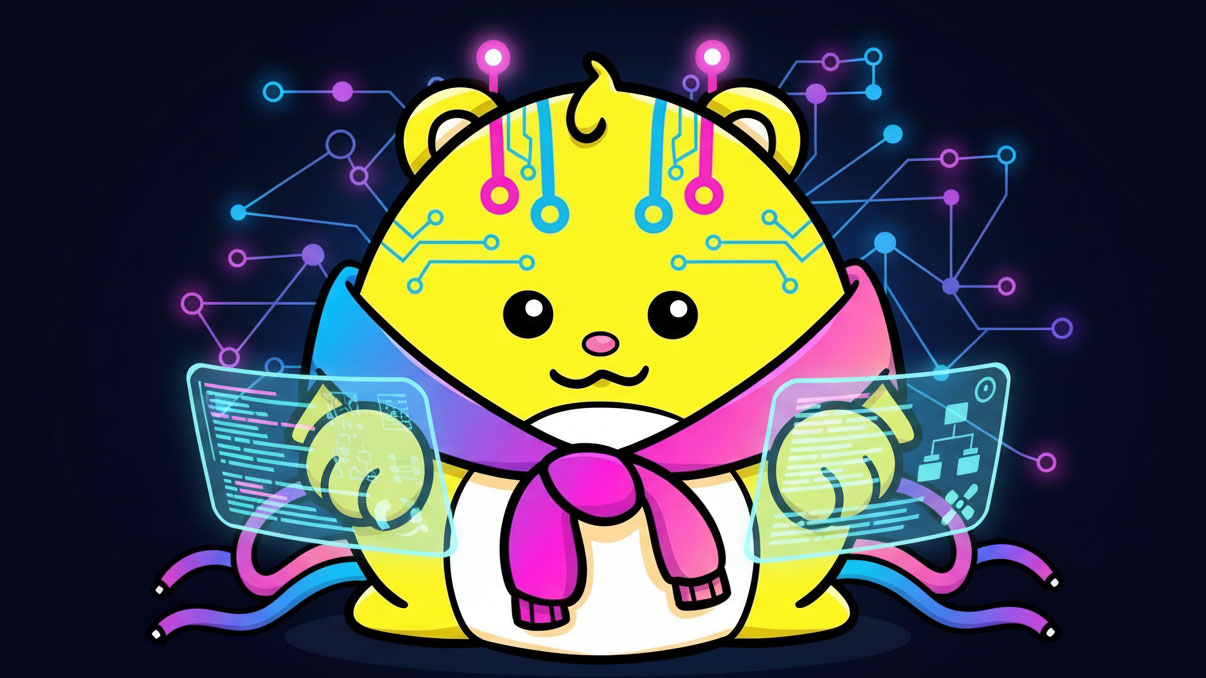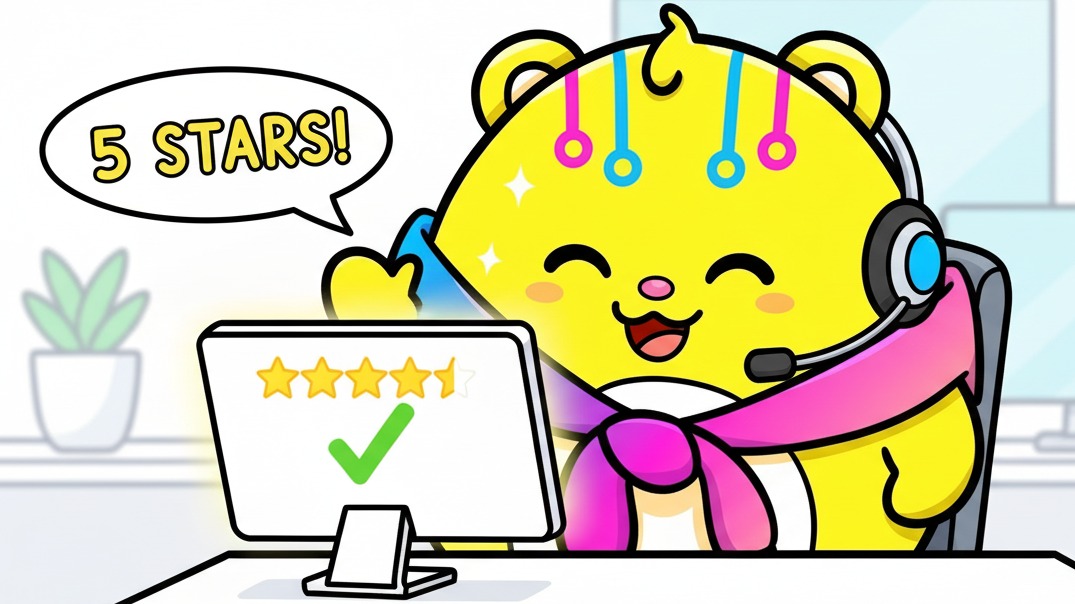Your team is wasting hours digging through emails. They ping coworkers for links. They write content that’s already been written because they couldn’t find what they were looking for.
This is the madness of internal information chaos, and it’s one of the main productivity killers.
It also costs a lot of money. Having to rework, duplicate effort, and uncover buried knowledge costs teams potentially hundreds of hours every month. Operation teams are stretched thin answering the same HR and IT questions over and over… and over.
Meanwhile, critical knowledge remains locked in silos.
Fortunately, there’s a better way.
And it begins with deploying an AI trained on your internal company knowledge.
Most companies think of Generative AI for customer-facing solutions such as:
- Chatbots that provide customer support
- Product recommendations that guide users to where they need to go
- Emails personalized to a customer’s use case, background, and purchase history
These are all well known external use cases for Large Language Models.
But there’s another transformation currently taking place behind the scenes. We’re talking about how Internal Company-facing AI is making teams smarter, faster, and more efficient.
By transforming the way information moves across a business, AI is reducing redundant work and unlocking that silo’d knowledge we discussed moments ago.
Let’s look at what internal AI is and how it transforms the flow of work in an organization.
Key Takeaways
- Internal company AI refers to Artificial Intelligence tools designed to support employees, not customers.
- Common types include intelligent search, internal chatbots, LLM-powered workflow agents, and knowledge managers.
- These tools streamline operations, reduce repeated questions, and surface hidden knowledge.
What is Internal Company AI?
Internal company AI or internal knowledge AI is any AI-powered tool or system built to help internal teams.
Internal AI can help with things like:
- Automatically answering questions using internal knowledge, so you don’t have to bother a teammate, and you receive the most accurate information from the direct sources.
- Automate routine, multi-step workflows like onboarding someone new.
- Help employees find accurate information faster, so everyone can work 10x more efficiently.
It can be helpful across multiple departments:
- Sales: Automatically retrieve case studies, pricing sheets, competitor info, and more.
- HR: Think benefits, vacation, training, company holidays. AI tools can answer a ton of those automatically, without a person stepping in every time.
- IT: Password resets, software access, and troubleshooting common issues.
- Finance: Explaining expense policies and automating parts of financial reporting.
- Legal: AI tools can surface things like legal documents, contract templates, or compliance guidelines.
Types of Enterprise AI Tools
“Business-facing AI” is a pretty broad category of tools. However, we’ve uncovered several specific solutions designed to solve different internal challenges from finding documents, to answering repetitive employee questions, or automating complex workflows.

By understanding the different types, you’ll be better able to find the match for your team. Some of your options will be lightweight and ready out-of-the-box. Others will require deeper integration with your internal systems.
But they all share a common goal: helping your employees work faster and smarter with less friction. This improves the employee experience and the customer experience by extension.
Here, we’ll break down the four main types of internal AI. We’ll also look at real-world examples of how teams are using them today.
Search AI
Search AI helps business leaders instantly access specific information buried deep in your internal knowledge base. These include emails, documents, wikis, PDFs, or databases. And you won’t have to sift through dozens of sources.
Companies like Elastic, Algolia, and Glean are examples of Search AI. It’s also worth noting that search AIs are extremely difficult to build, but not for the reason you think.

This system won’t just return a list of links like Google. Instead, it’s designed to deliver direct answers based on the context and intent of the query.
For example, asking “What’s our SOC 2 status?” should not yield a vague search result. It should surface the exact compliance statement from the latest internal sources on file. This goes far beyond traditional keyword search by using natural language processing to interpret what your team means. It no longer looks at just what they type into a search bar.
The result is faster answers, fewer interruptions, and less time wasted digging.
Search AI works best when it’s connected to Google Drive, SharePoint, Notion, Slack threads, and other internal systems.
Real use case: A sales rep preparing for a security review can instantly find the most recent answers about certifications, penetration tests, and compliance policies. And they don’t have to wait for the security team – who are way too busy dealing with important cyber threats.
Internal AI Chatbots
Internal AI chatbots act like an AI assistant for your company. They answer everyday employee questions you’d typically see in Slack, MS Teams, or whatever internal intranet you use.
Your team won’t have to email their colleagues or HR when fielding customer inquiries. They won’t have to search through outdated wikis to understand your company’s capabilities.
Instead, they can simply ask, “How do I submit an expense report?” or “What’s our holiday calendar?”
They’ll get an instant, accurate response.
Internal AI chatbots are especially effective at handling routine questions that often flood your HR, IT, or operations teams. Instead of draining those human resources, automate the repetitive stuff. You’ll free up your teams to focus on their critical, strategic work. And your employee guidance will be faster and more consistent.
Real use case: An HR team at a 50-person startup deploys an HR chatbot that lives in Slack. It answers 80% of repetitive queries, allowing the team to focus on strategic work instead of FAQ patrol.
AI Agents
AI agents go beyond answering questions. They take action. They’re designed to handle complex, multi-step internal tasks. To do so, they interact with your centralized platform through APIs and respond to natural language prompts. And you’ll get real results and actionable insights.
Tools like MultiOn, Clay, and CrewAI are examples of AI agents with very different personas / use cases.
For example, let’s say you’re used to logging into three tools to onboard a new hire. With an AI agent, you can fill out the checklist, send the welcome email, and schedule orientation way faster then you would be able to do manually.
Or if you need last quarter’s sales by region in a PowerPoint, your AI agent can gather the data, create the visuals, and generate a deck.
An Agentic AI workflow tool can combine reasoning, automation, and integration with other software. So they can act as powerful behind-the-scenes coworkers who always get things done.
Real use case: A revops team creates a GPT-powered agent that generates weekly sales performance reports by querying the CRM, formatting data, and emailing summaries to execs.
AI Knowledge Managers
AI knowledge managers proactively deliver the right information to the right person at the right time.
No more watching your employees hunt through wikis or interrupting your busy subject-matter experts. These tools will surface the relevant knowledge based on the current context and your employee’s activity.
For instance, if a sales reps is tasked to fill out a long proposal, a tool like 1up can automatically generate responses using previously completed questionnaires.
AI knowledge managers can anticipate information needs, so interruptions are reduced, decision-making is improved, and teams move faster.
Real use case: A solutions engineering team integrates 1up with their CRM and product knowledge base. When a sales rep gets asked a question by a customer, 1up provides a high quality response using trusted technical documentation.
How to Make Enterprise AI Assistants Useful
Internal knowledge AI is changing the way work… well… works. It makes it faster and easier to find information. It automates tasks. And it reduces repeated questions.
Employees no longer have to rely on clunky systems or overwhelmed coworkers. Now, they can get real-time help from smart tools embedded in their daily workflows.
Here’s how it works. And why it matters.
1. Connected to Live, Accurate Content
Internal AI can only be as useful as the data it draws on. If a tool pulls outdated or disconnected info, it will give that incorrect information and employees won’t trust the tool anymore.
To be truly valuable, internal knowledge AI has to be connected to live, updated sources across your organization. This could be Google Drive, Confluence, email threads, support tickets, product documentation, or wikis.
When it’s plugged into these systems, your AI can give you answers and take action based on whatever you currently have available. Your team can stay aligned and confident with the tool they’re using.
2. Easy to Use in Real Workflows
Even the most advanced internal AI won’t succeed if it’s a pain to use. Your tools have to be embedded directly into the places where your teams are already working. This could be Slack, Google Docs, or Salesforce, for example.
If users have to switch contexts, remember a separate login, or deal with a clunky interface, your team will drop the tool. Fast.
The best tools are invisible in the best way.
They show up seamlessly inside familiar workflows, so support feels immediate and frictionless.
3. Secure, with Access Controls
Security and privacy are EVERYTHING.
Seriously, none of this matters if you can’t keep your data and your customers’ data safe. Internal AI tools must respect existing access controls and data permissions. Your sensitive files, like financial reports or HR files, should be visible only to authorized users.
The right tools will integrate with your current identity systems, enforce role-based access, and include detailed audit logs. This will make sure that your compliance stays golden.

Without strong guardrails, internal AI becomes a risk rather than a benefit.
So security must be baked in from the jump.
4. Good Business AI Improves Over Time
Of course, the best internal AI will get better the more you use it. It learns and adapts in real-time from real-world interactions.
The AI will be able to adapt and provide better and better responses and get smarter over time.
Many of them can also include feedback loops, so your employees can upvote or downvote answers, improving responses over time.

This continuous learning ensures you have an AI system that’s more than a static helper. It’s a dynamic, vigorous assistant that evolves with your business.
Getting Started with Business-Facing AI
Customer-facing agents get all the attention, but it’s internal AI that’s really saving businesses time and money. It’s revolutionizing how high-performing teams function.
So, how do you get started with knowledge management at your company?
- Choose the problem you’re solving.
- Are you trying to make it easy for sales reps to get talking points? That’s a chatbot.
- Are you trying to automate workflows? Look for an Agent.
- Are you making it easy for multiple departments to find knowledge fast? That sounds like an AI search problem.
- Centralize your data in a single tool, so that the one system can learn from all of your data.
- Deploy and monitor usage. You should encourage feedback, and revisit your knowledge sources regularly.
Not sure where to begin? Get a demo of how 1up helps industry leaders like WalkMe, Gladly, and Deliveroo automate knowledge, generate fast answers, and improve workflows.
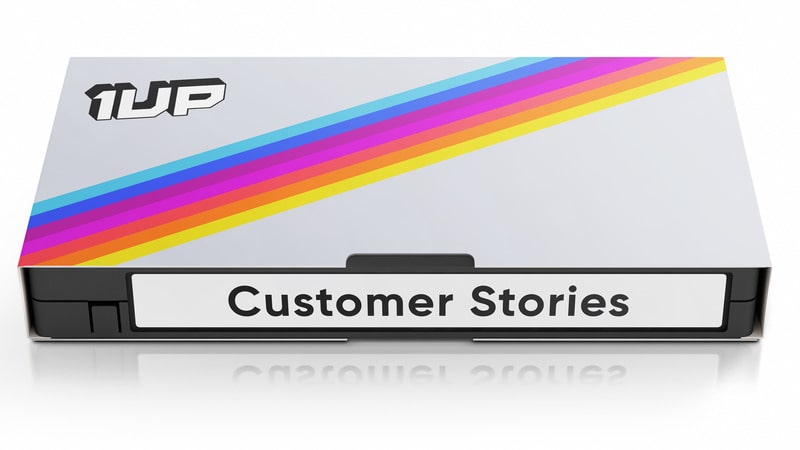

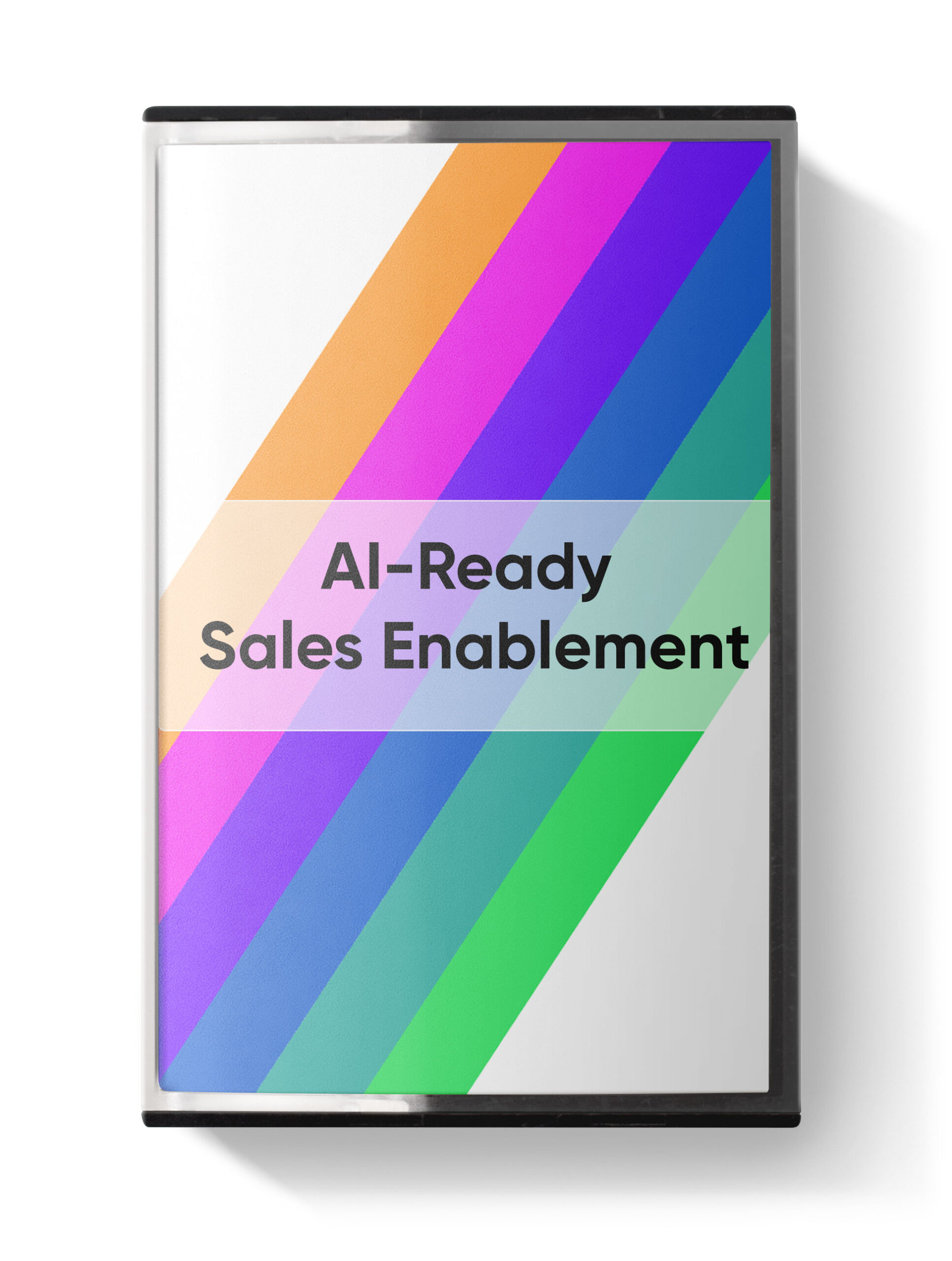
 Instagram
Instagram 



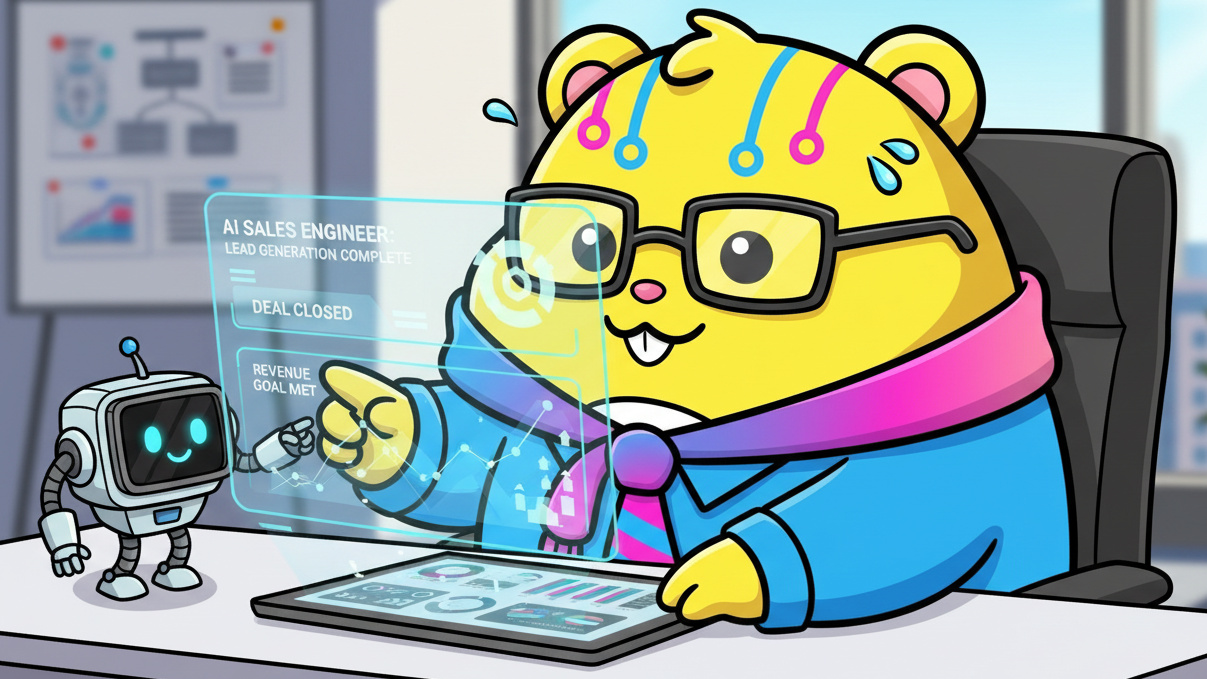

![The State of AI in Knowledge Management [2026]](https://1up.ai/wp-content/uploads/vhs_cassette_state_of_ai_in_knowledge_1.png)


